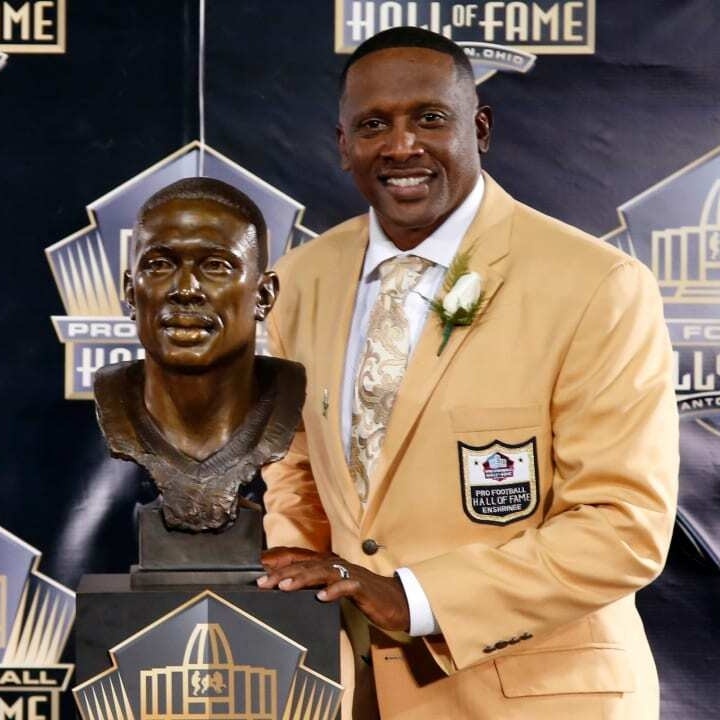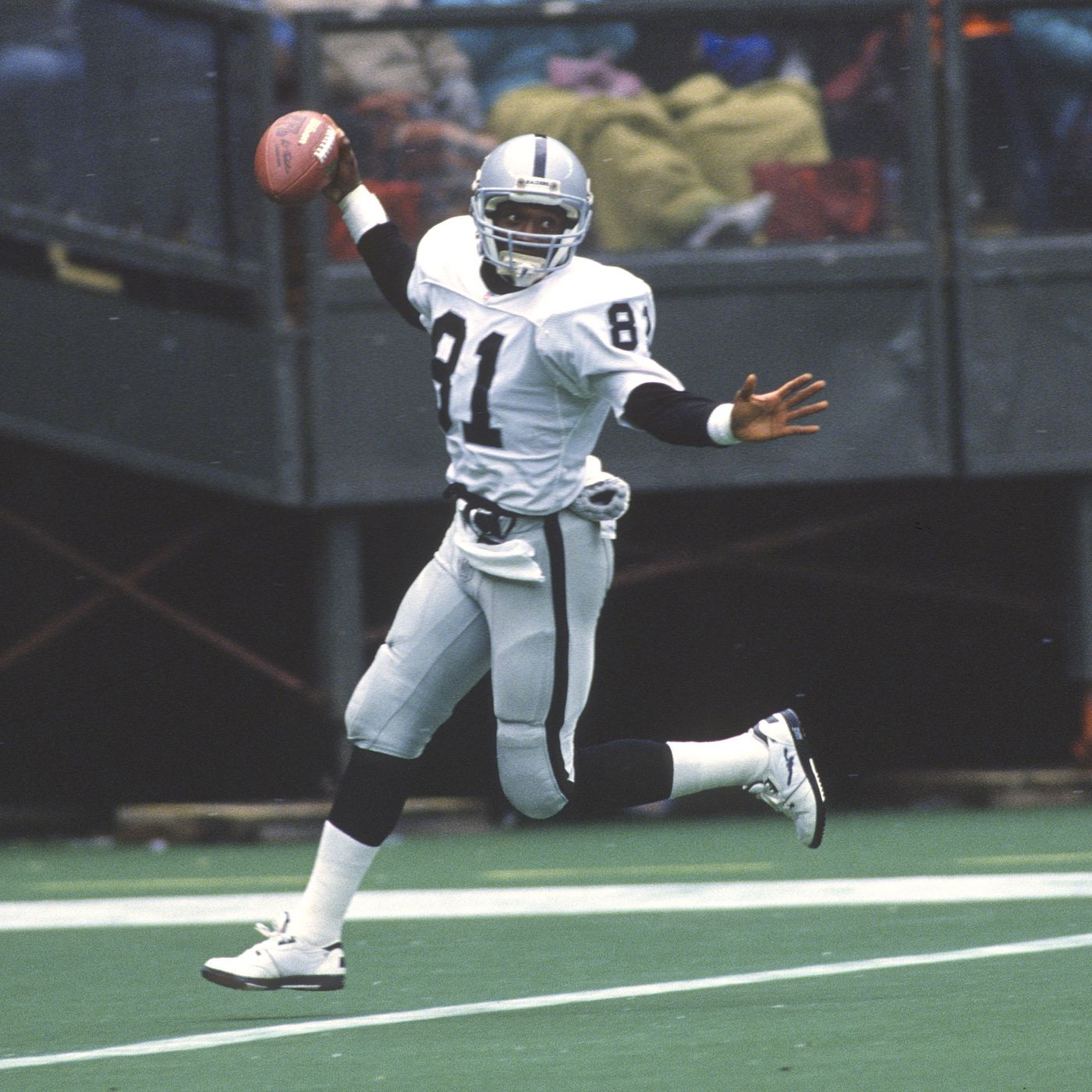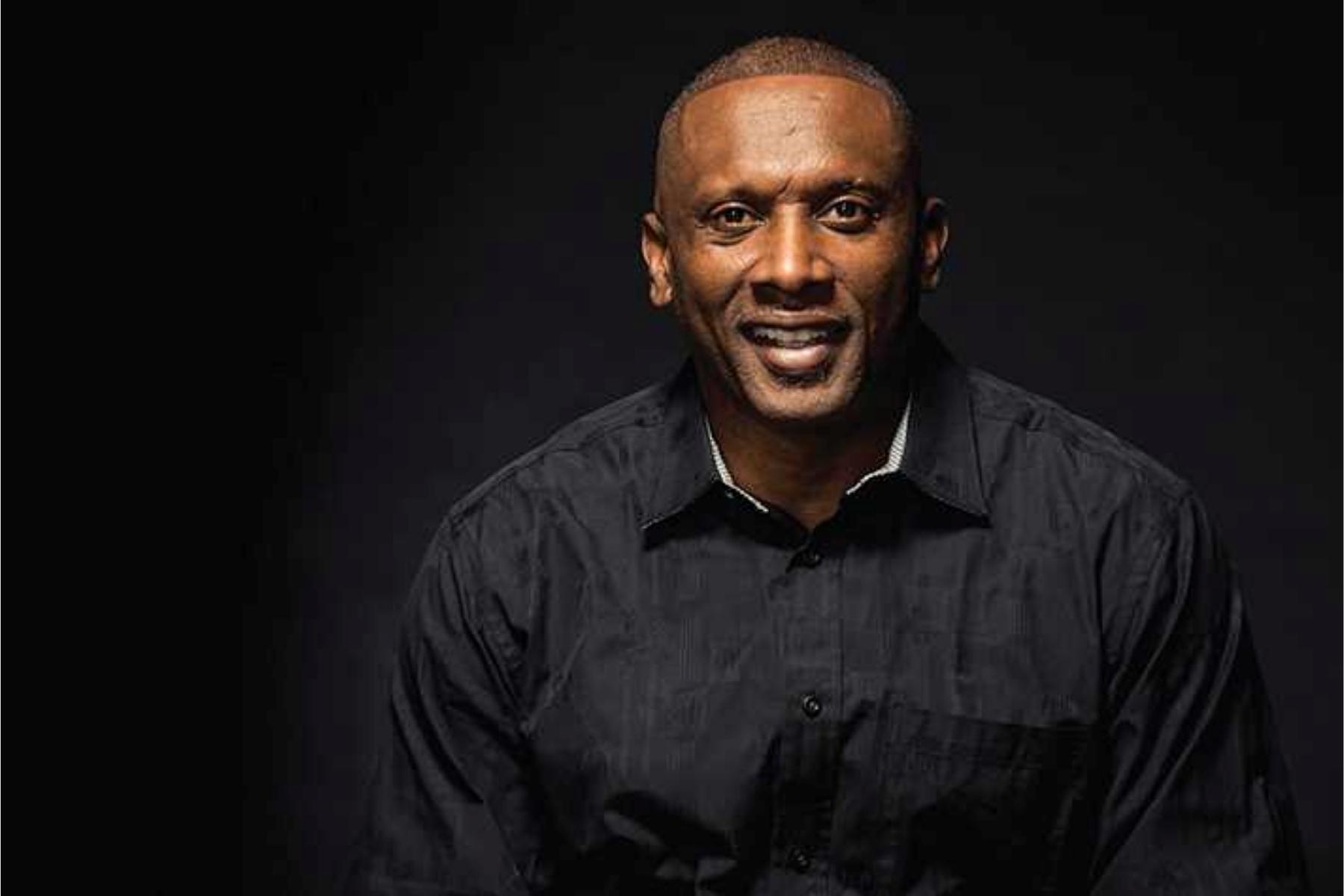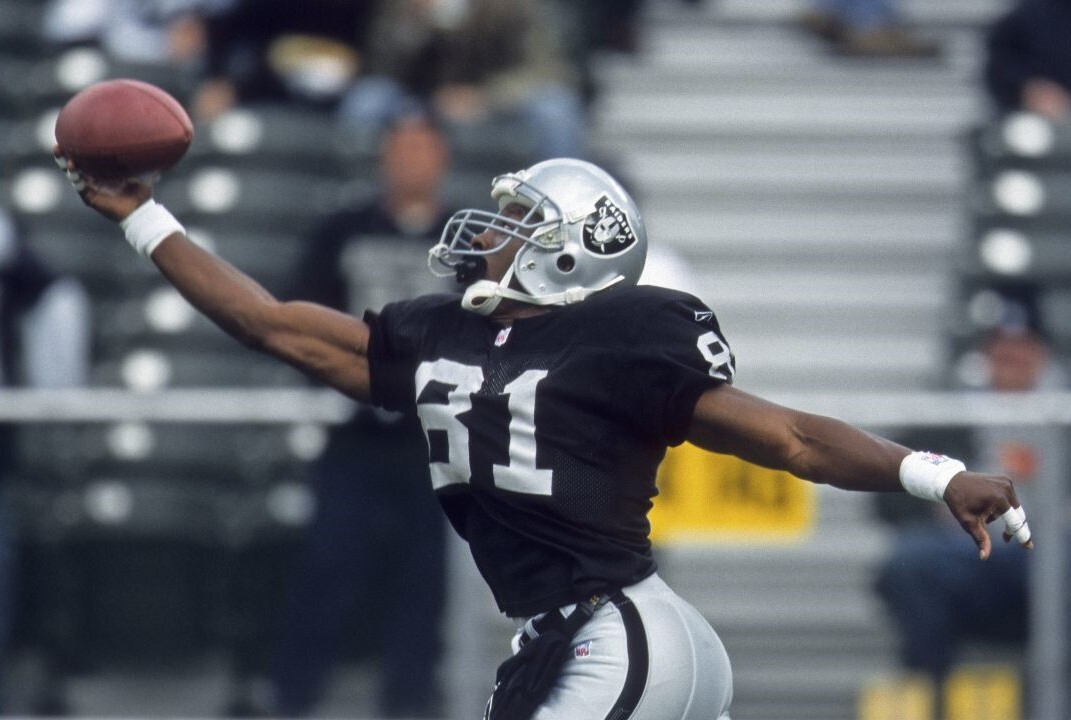
Catching Up With Former Player Rep: Tim Brown
A former NFL wide receiver, Tim Brown spent the majority of his 17-year NFL career with the Raiders and finished his career with the Buccaneers. Tim had a standout career at Notre Dame before being selected 6th overall in the 1988 draft. He is a 9-time Pro Bowl selection, a College Football Hall of Fame inductee, a Pro Football Hall of Fame Inductee, holds numerous NFL records, and many more. During his professional football career, he held a position as Player Rep for his team before eventually also becoming a member of the NFLPA Executive Committee. We caught up with Tim, and he gave us insight into his life during and after football.

What inspired you to become a Player Rep?
Back in the days when I started being a Player Rep, I think my first year was actually 1989. Nobody was interested in being a Player Rep. Being a Player Rep was a debt to us at that time. So, the reason I was assigned to be a Player Rep is because Howie Long said “Hey, they're not gonna cut Timmy, let's make him a Player Rep.” So that's how I got involved. I was happy to do so, but it wasn't an urge on my own part for sure. Matter of fact, initially, it was a little scary because I didn't know the league well enough to know what was going on. That was in the midst of some turbulent times in the NFL. So from that standpoint, it was good to be a part of it.
What were some of the takeaways from your time as a Player Rep?
I was a rep until 2006. So, I went like 17 - 18 years as being a rep, and on the executive committee at the time as well. Of course, after I retired, I gave up being a rep, but two years after I retired, I still was on the executive committee. To see the changes to the league during that time, we got free agency, guys are making more money, things of that nature. So things have changed from ‘89 to 2006.

Why should more players look to get involved in the NFLPA?
You gotta be in the know, you've gotta know what's happening. This is your job, this is your life at this particular point. Whether you play two games or 20 years, you need to know what you have coming to you, if anything. Or if you don't have anything coming, you need to know that for sure. I think we had a great group with the Raiders all my time because I convinced the guys that they couldn’t be ignorant of what they were doing at this particular point of their lives. You shouldn't be asking your wife questions about what's going on with the Players Association. That should be something that you know, and with the league also. If you hear something on TV, you should be able to refute that or agree with it right away. I think that the thing that I enjoyed the most was getting these guys to come into these meetings and listen, participate, and walk away with the knowledge that they wouldn't have had otherwise.
What is a piece of advice that you would give to players transitioning out of football?
I wanted to stay around the PA once I retired. I did for two years because I was still on the executive committee but after that, it was pretty tough. It was tough for a couple of reasons. One, because you aren't a part of the league anymore, and two, logistically it just makes it impossible to do some of the things that you really want to do. Gene Upshaw and I were good friends. He unfortunately passed a couple of years after I retired from the executive committee. When he passed away that sort of did it for me. We were such good friends, it just made it very difficult to even hear “NFLPA” and not see him around, because he had been the man when it came to representing the NFLPA. I definitely highly recommend that people keep up with stuff online now. I just want to make sure that I’m up on the latest that’s out there and I recommend everybody do that. But I know for a fact that probably 95% of guys don't.
What are you doing in your career now?
I did about 7 years of TV at ESPN and Fox Sports One, and I'm still doing Sirius XM radio now. The radio show is every Saturday morning. For business, I have a fuel transport and supply business, 81 Logistics Group. We move fuel for Delta and Allegiant Airlines, AT&T, and some of the other big companies out there. We’re trying to get some deals with the government, so that's what I'm doing now.

How have you applied the lessons you learned from football to your career now?
If you're gonna be great in the NFL, then you have to work hard. And guess what? If you're gonna be great in business, you've got to work hard. So, that concept doesn't escape me. If I have to stay up late or get up early or drive 300 miles or do whatever I have to do. During COVID, everybody was driving, nobody wanted to fly, right? If we had to drive to a meeting, that's what we did. I just think that you have to be committed to the cause, just like during your football season. I got 17 years in the NFL, Hall of Famer, all that kind of stuff. I mean that's doing it to the highest level you can do it. Well, if you're going to do that in business, you gotta have the same kind of dedication.
What does the NFLPA Fraternity mean to you?
There's nothing like having a football fraternity. When we get in the room together still, it's a different vibe than when you're around your regular boys, right? Because you know what you have suffered together, enjoyed together, in the locker room, it can only be shared between those guys. For me, to have that fraternity, to have the guys know that when I look at certain guys in the eye, they know exactly what I'm thinking because they've been through it all. I just think it's sort of a comfort level for everybody. That's why these golf tournaments or whatever we may be doing together, it’s super important that we do it because there's just nothing like having those guys in your life.
What’s a piece of advice that you’d go back and give yourself early in your career?
Even though I really enjoyed the football season and my career, I was really strict about my workouts and things of that nature and the off-season. I never missed a workout in 17 years. In 16 off-seasons I probably missed 5 workouts period. I can remember not going to certain events or not doing this or not doing that. I think I would have relaxed a little bit and just enjoyed life and taken it all in. I don't know if that would have made any difference to where I ended up. That's my problem with that, is that when you end up in the Hall of Fame, it's like you did what you're supposed to do. I just think it's a tough deal. Nobody lives a perfect life, but at the same time enjoying life is never a bad thing.